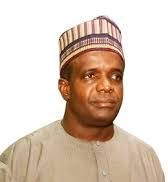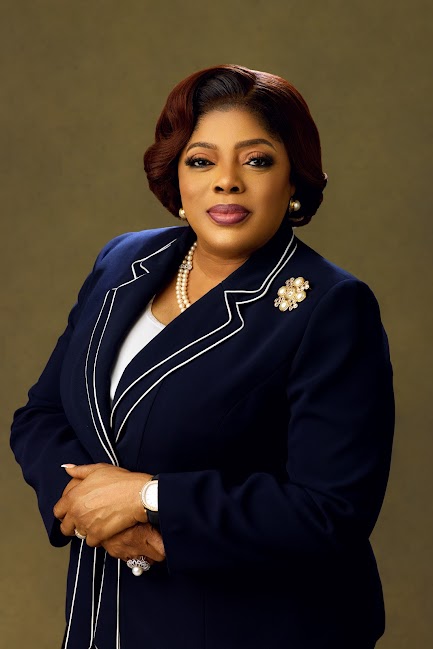ASIS 2023: African Development Community Gathers in Lagos to Discuss 7-Year Plan for Accelerated Development in Africa
key players from the government, the diplomatic community, civil society, and the public and private sectors recently gathered in Lagos for the two-day Africa Social Impact Summit (ASIS), co-convened by Sterling One Foundation and the United Nations, Nigeria.
The gathering, which was held under the theme – Global Vision, Local Action: Repositioning the African Development Ecosystem for Sustainable Outcomes, was the second edition of the Africa Social Impact Summit designed to help build partnerships and galvanise investments that will ensure that Africa makes rapid progress towards achieving the Sustainable Development Goals.
With the world halfway through the 15-year timeline set for the Sustainable Development Goals, there has been a call across the globe to review the work done to see what has worked and what has not, and to identify critical areas where additional measures are needed for success to be achieved.

This call formed the basis of conversations at ASIS 2023, as former President of Malawi, Joyce Banda, Consul Generals of the British High Commission, United States of America, German, and Danish Consulates, Permanent Secretaries of the Nigeria Ministries of Women Affairs, Education, Water Resources, Environment, Budget, and National Planning, non-profit leaders, business executives, and experts from different vital sectors, including education, health, climate action, agriculture, and more, shared insights into their different sustainability strategies, results so far, and plans for the coming years.
Mrs Olapeju Ibekwe, CEO of the Sterling One Foundation, expressed hope for several partnerships and innovations to emerge from the summit in her opening remarks, noting that she was looking forward to existing social impact initiatives in various rural communities accessing multilevel resources to be able to do more and spread their impact from community to community across the continent. She added that she was humbled by the intentionality of the private sector to own the sustainable development goals and grateful for the partnership of the United Nations as the co-convener of the summit.
“Across the continent, the people are waiting for action. For far too long, Africa has been tagged – the Emerging Continent, with the continent’s potential a recurring theme of conversation, yet poverty, hunger, climate crisis, and inequality, remain visible; thus, Africa is yearning for action. I remain confident and incurably optimistic that there is the capacity for the type of action we seek in this room. There is the capacity to build strong partnerships for
sustainable solutions to move from plans to action quickly. I urge everyone to interact and collaborate because the stakes are very high,” she noted.
In his welcome remarks, Mr Abubakar Suleiman, Managing Director and CEO of Sterling Bank Limited and Board Member of the Sterling One Foundation, explained that the true essence of the Summit was to ensure that at every level, the issues and challenges resulting in widespread poverty across Africa get tackled rightly and that everyone is moving in the right direction.
“Six months from now, when we reach out to you, we want to hear that because you came here, you met someone, and you established a relationship, you rethought your approach, therefore, are getting more value from your resources, and are better at solving problems together. The only thing that matters is the relationships you form today and how these relationships transmit to a much better outcome than you had before you came here,” he said.
Before yielding the stage to the diplomatic community, UN Resident and Humanitarian Coordinator (a.i), Nigeria, Mr Matthias Schmale, described the Summit’s timing as an opportune happenstance during a time of enormous challenges and great opportunities for Africa. He went on to say that the 2030 Agenda is a clear framework for addressing these challenges facing Africa, which requires all of us to break free from business-as-usual approaches and move together faster.
“Governments, NGOs, and civil society cannot tackle our current challenges alone. If we are to secure a just, sustainable world, we need a whole-of-society approach in which the private sector plays a pivotal role,” he said.
While further stating that the promise of the 2030 Agenda is now in peril, he urged more CEOs and investors to adopt the ten principles of the UN Global Compact, hire more qualified women, and ensure that their investments focus on more than just profit to reflect social impact considerations.
He pledged support to the Nigerian Government, citing the Cooperation Framework for Sustainable Development, which both parties have agreed to, and also called on more organizations to embrace Public-Private Partnerships to leverage the strengths and capabilities of both sectors to fast-track and scale up major development initiatives.
The host government, represented by the Lagos State Deputy Governor, Dr Kadri Obafemi Hamzat, welcomed this pledge and idea as he asked the private sector to take the lead in unleashing enterprise-driven innovation to create the impact ecosystem required for recovery within the state and across Africa.
The Permanent Secretary of the Nigerian Ministry of Education, Mr David Adejo, further echoed this sentiment as he stressed that the government cannot solely run the education sector and endorses private sector and academia partnerships to significantly restructure the curriculum and determine the kind of graduates we want. He mentioned that this was already underway with the International Finance Corporation (IFC), which has birthed entrepreneurship departments in all universities in Nigeria. Yet, there’s still a lot more to be done to help younger children.
In her goodwill remarks, Joyce Banda, former President of Malawi, urged the private sector in the global north to forge strong partnerships with the private sector in the global south to directly impact people within African communities.
Remarks from the US Consul General, Mr Will Stevens, the German Consul General, Mr Weert Börner, the Danish Consul General and Head of Trade, Mrs Jette Bjerrum, and a representative of the British High Commission, all highlighted the potential that Africa holds, especially with its human resources and the different ways each of these countries is supporting to harness these resources.
The US Consul General, in his remarks, said it was time to begin to talk about African solutions to global problems, not just African solutions to African problems.
With partnerships from top private organizations such as The Coca-Cola Company, Microsoft, MTN Foundation, Sterling Bank, Oando Foundation, SBG Insurance Brokers, the African Venture Philanthropy Alliance, TRACE and developmental partners like the United Nations Development Programme (UNDP), British Council, United Nations Global Compact Network Nigeria, USAID-sponsored Nigeria SCALE Project, Nigeria INGO Forum, Association for the Development of Education in Africa (ADEA) and UNIDO-ITPO Nigeria, the Summit was able to convene over 1,500 physical attendees, and more than 60 leading experts in various industries, who engaged in discussions about the critical sectors of the African economy.
With keynote addresses, delivered by Amina J. Mohammed, Deputy Secretary-General, United Nations, who described Africa as the “most exciting business opportunity in the world, with 60% of the world’s arable land and a massive population of motivated youths,” Prof. Oyebanji Oyelaran-Oyeyinka, Senior Special Adviser to President on Industrialisation, African Development Bank Group, who stressed the need for an economic transformation from agriculture-based to industry and services and Adrian Clamp, Global Head of Connected Enterprise at KPMG, the Summit helped to identify evidence-based strategies for improving impact investment inflow into Africa.
Other panel discussions focused on more promising ways to fund quality education access, health programs in underserved communities, strategies for financing scalable climate change solutions, increasing the operational efficiency of civil society organizations, accelerating action on water and critical action points for genuine equitable development, harnessing our youth population and their talents, and improving how we report the progress made on the continent.
Beyond the panels and keynote addresses, the Summit featured a deal room with pitches from 18 businesses shortlisted from over 500 applications from across Africa. The finalists from South Africa, Kenya, and Nigeria with health, waste recycling, agriculture, and education businesses had a combined investment bid of about $49,600,000 for expansion and
production capacity increase. Successful candidates will access the requested funds to scale their businesses.
End//




 Business7 months ago
Business7 months ago
 celebrity radar - gossips5 months ago
celebrity radar - gossips5 months ago
 celebrity radar - gossips4 months ago
celebrity radar - gossips4 months ago
 Business3 months ago
Business3 months ago











